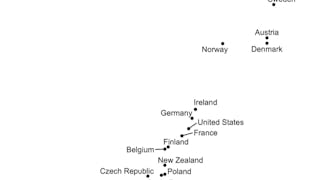Organizations can harness the power of causal inference through randomized field experiments, uncovering the true effects of interventions and enabling data-driven decision-making. In this course, we will delve into how companies are currently utilizing A/B testing. Additionally, we will explore the ethical considerations of conducting experiments and the econometric methods for analyzing causal relationships in observational data.

Unlock access to 10,000+ courses with Coursera Plus. Start 7-Day free trial.

Causal Inference Project Ideation
This course is part of Analytics Project Ideation Specialization

Instructor: Soumya Sen
Included with
Recommended experience
Skills you'll gain
Details to know

Add to your LinkedIn profile
8 assignments
See how employees at top companies are mastering in-demand skills

Build your subject-matter expertise
- Learn new concepts from industry experts
- Gain a foundational understanding of a subject or tool
- Develop job-relevant skills with hands-on projects
- Earn a shareable career certificate

There are 5 modules in this course
What's included
3 videos
This module provides an overview of causal inference, starting with an introduction and lessons from real world examples. It then explores how companies use online A/B testing for personalization, key tenets and ethical considerations of controlled experiments, and concludes with methods for working with observational data, including the difference-in-difference method.
What's included
8 videos2 assignments
This module covers the setup of Randomized Field Trials (RFTs), including hypothesis development, evaluation criteria, parameters, and treatment and control groups. It also addresses the importance of randomization, the selection of randomization units, and best practices for designing robust experiments.
What's included
8 videos2 assignments
This module focuses on high-level needs identification, including understanding user journey maps, identifying business needs, and prioritizing them using PICK charts. It also covers SCQ analysis for referral bonuses in online word-of-mouth (WOM) and breaks down problems into subproblems, identifying common themes, and constructing an issue tree.
What's included
10 videos2 assignments
This module covers results mapping by designing field experiments that align with the key questions that the business is interested in. It also delves into experiment design, focusing on hypothesis development and identifying control and treatment groups. The module concludes with a final project plan review.
What's included
6 videos2 assignments
Earn a career certificate
Add this credential to your LinkedIn profile, resume, or CV. Share it on social media and in your performance review.
Instructor

Offered by
Explore more from Leadership and Management
 Status: Preview
Status: PreviewColumbia University
 Status: Preview
Status: PreviewColumbia University
 Status: Preview
Status: PreviewUniversity of Pennsylvania
Why people choose Coursera for their career





Open new doors with Coursera Plus
Unlimited access to 10,000+ world-class courses, hands-on projects, and job-ready certificate programs - all included in your subscription
Advance your career with an online degree
Earn a degree from world-class universities - 100% online
Join over 3,400 global companies that choose Coursera for Business
Upskill your employees to excel in the digital economy
Frequently asked questions
To access the course materials, assignments and to earn a Certificate, you will need to purchase the Certificate experience when you enroll in a course. You can try a Free Trial instead, or apply for Financial Aid. The course may offer 'Full Course, No Certificate' instead. This option lets you see all course materials, submit required assessments, and get a final grade. This also means that you will not be able to purchase a Certificate experience.
When you enroll in the course, you get access to all of the courses in the Specialization, and you earn a certificate when you complete the work. Your electronic Certificate will be added to your Accomplishments page - from there, you can print your Certificate or add it to your LinkedIn profile.
Yes. In select learning programs, you can apply for financial aid or a scholarship if you can’t afford the enrollment fee. If fin aid or scholarship is available for your learning program selection, you’ll find a link to apply on the description page.
More questions
Financial aid available,


